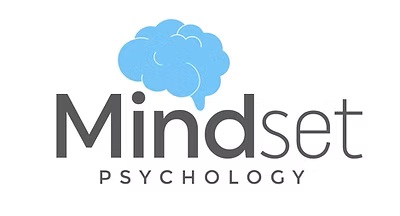Work-life balance is a term used to describe one’s ability to manage responsibilities and tasks as well as prioritize time for other things such as family, hobbies, and personal well-being. Having a work-life balance is important because it guarantees improved mental health and ensures a better quality of life. We live in a fast paced society that values work above all else. Overworking and constant productivity can become draining and limit one’s ability to take control of their time, which may eventually lead to burnout. In order to have work-life balance, it’s important to cater to your needs, develop healthy time management, reduce stress, and create boundaries. Seeking support through therapy can be an excellent way to start your journey in developing these skills and enhance overall well being.
Signs You Might Need Help with Work-Life Balance
● Constant stress and feeling overwhelmed.
● Difficulty setting boundaries between work and personal life.
● Physical and emotional exhaustion leading to burnout.
● Struggles with relationships due to work commitments.
● Lack of fulfillment or feeling stuck in a routine.
How Therapy Can Help Improve Work-Life Balance
Identifying Stress Triggers and Patterns- Being able to identify your stress triggers and patterns is crucial in your journey towards achieving work-life balance. Therapists will help individuals identify these factors by fostering self awareness and providing the tools necessary to manage stressors. Through therapy, clients will be guided by their therapist to better analyze specific mental and behavioral patterns that are hindering their ability to manage stress, set boundaries, and maintain a balanced lifestyle. Recognizing unhealthy work habits and emotional responses is essential in understanding how work stress can affect both one’s mental and physical health.
Learning to Set Boundaries- Saying “yes” can be a good thing. You can say yes to spending time with friends, yes to doing a favor for a family member, or even yes to taking on new tasks. But it is important to remember that saying “no” can be a good thing too. There are many reasons people are afraid or reluctant to say “no”. Some have a fear of looking weak, some are worried about disappointing people or being viewed as selfish. These worries can cause one to struggle with setting personal boundaries, which can lead to burnout. Through therapy, you can learn how to become more comfortable with saying no and understanding that saying “no” is not a sign of weakness, but instead a sign of self-respect and is one of the keys to a healthy work.
Managing Stress and Anxiety- 3 Stress and anxiety are signs of struggling mental health. These feelings of vulnerability are natural, but this does not equal weakness. Therapists will provide practical coping strategies for workplace and personal stressors. Some of these strategies include:
Take the Next Step Toward Healing
You don’t have to navigate life’s challenges alone. Our Long Island therapists provide a safe, supportive space for you to heal and grow.
Cognitive Behavioral Therapy: aims to change negative thought patterns and encourage healthy responses to stress. –
Mindfulness exercises: Supports the idea of being fully present in the moment and acknowledges your thoughts and feelings to help reduce stress and mental strain. –
Relaxation Methods: Approaches such as deep breathing, guided imagery, and muscle relaxation to calm the nervous system. With the help of a therapist, individuals can learn to better manage their stress more successfully, learn to control their emotions, and build long-term perseverance against their future challenges.
Enhancing Time Management and Productivity- Attaining better time management and productivity is not easy but can be made possible by prioritizing the proper techniques. In therapy, individuals can learn prioritization techniques that will help them decrease stress, improve organization, and enhance their focusing skills more efficiently. Overcoming procrastination and developing healthier, important work habits are essentials for achieving a balanced and productive lifestyle. Therapy provides the resources and guidance that are necessary to develop these habits and feel more in control.
Reconnecting with Personal Goals and Well-Being- Therapy has the power to give people the opportunity to reconnect with their personal goals and reexamine what it is that truly brings them joy outside of their work. By exploring their passions, long-term goals, and values, individuals can discover a deeper sense of purpose that surpasses their professional identity. Therapy can also promote the importance of having stronger relationships, practicing self-care, and engaging in meaningful hobbies. These are all factors that contribute to better emotional well-being and a more balanced life.
When to Seek a Work-Life Balance Therapist
It is important to know when stress and imbalance will begin to affect your health and happiness. Feeling emotionally drained, overwhelmed, and even physically ill are signs that you need to seek support. Therapy can be of help, especially for providing a long-term balance by helping you to understand what is causing your stress patterns and develop safer, more beneficial ways to create and maintain long-term solutions through learning how to cope.
Work-Life Balance Therapy at Mindset Psychology
Here at Mindset Psychology, we offer trusted therapy services designed to support individuals in achieving better work-life balance. Our team of experienced therapists specializes in helping clients manage their stress, defeat burnout, and set healthy boundaries. Through personalized and compassionate care, therapists tailor each session to meet the unique emotional needs and lifestyle goals of their clients. Whether you are struggling with time management, emotional fatigue, or difficulty separating work from personal life, Mindset Psychology offers effective, evidence-based strategies to restore balance. Scheduling a consultation is simple, and is the first step toward reclaiming your well-being and living a more fulfilling, balanced life.
Conclusion
Work-life balance is not just a dream, it is a realistic goal. With the right mindset and professional support, you will be sure to obtain this dream. By prioritizing your mental and emotional health, you’re investing in your long-term happiness, productivity, and personal fulfillment. Don’t wait until burnout takes over. Visit Mindset Psychology today to connect with a therapist and take back control of your life by achieving work-life balance.

